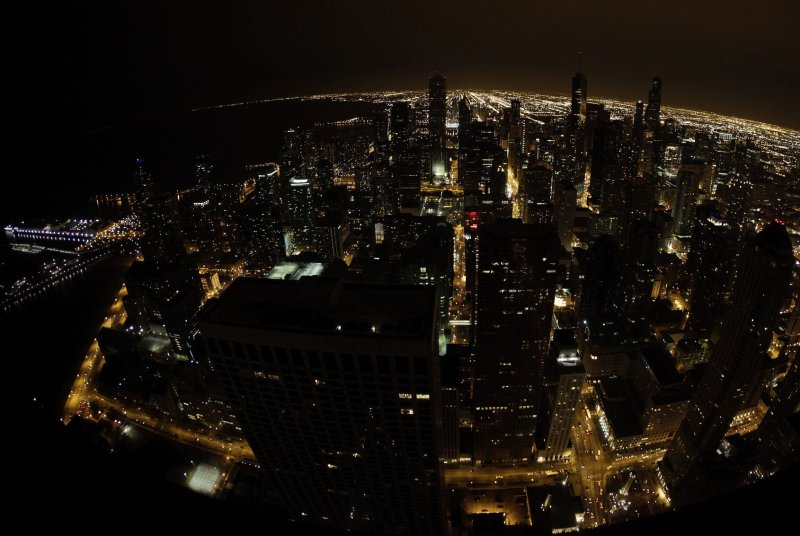The Chicago skyline is seen from the John Hancock Center's 94th floor observatory. Sunday, Chicago police said there were more than 750 homicides in the city in 2016 -- an increase of nearly 60 percent and the biggest spike in decades. Police also recorded 1,100 more shooting incidents in 2016. File Photo by Brian Kersey/UPI |
License Photo
CHICAGO, Jan. 1 (UPI) -- The murder rate in the nation's third-largest city more than doubled in 2016 -- a staggering statistic that represents the largest spike in decades, statistics show.
According to the Chicago Police Department, 762 homicides were recorded last year -- an increase of 277 deaths, or a 57 percent jump. The increase was Chicago's largest in up to six decades. Further, 2016 saw more than 1,100 shootings than it did the previous year.
The skyrocketing rate last year came amid nationwide public opposition to certain police behaviors involving a number of unarmed minority citizens.
Commentators have pointed to the perceived increase in social injustice and a steady supply of illegal guns in the city as contributing factors to the increase. Stats showed that more than 8,300 illegal firearms were confiscated by Chicago police in 2015.
Most of the homicide spike is attributed to Chicago's South and West sides, which are areas known for high crime rates and gang activity.
"These emboldened criminals were responsible for destroying families and communities, as well as doubling attacks on Chicago police officers," Chicago Police Department Superintendent Eddie Johnson said at a news conference Sunday, adding that more illegal guns were seized in the city last year than were in New York and Los Angeles -- the two metro areas larger than Chicago -- combined.
"In 2017, the Chicago Police Department will be implementing a series of initiatives aimed to reduce violence."
It also didn't take long to start the count for 2017. Two men were shot dead at a Chicago bar in the early morning house Sunday. More than a dozen people were hurt in nine shooting incidents early Sunday.
The department said that the incredible spike in 2016 is "unacceptable."















